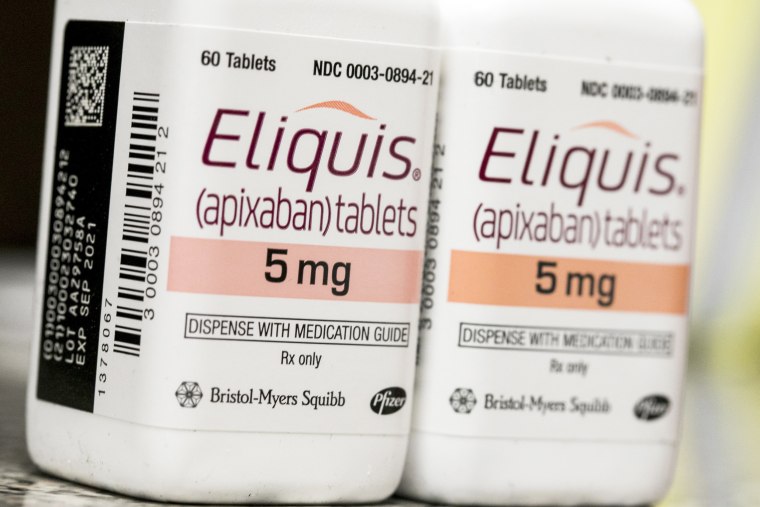Major drug companies including Johnson & Johnson, Merck and Bristol Myers Squibb have committed to participate in Medicare drug price negotiations with the federal government, the Biden administration said Tuesday.
The move is a positive step for people on Medicare, although there are still lawsuits from drug companies fighting the price negotiations. The final prices aren’t expected until next year, and older people won’t see the benefits until 2026.
The Centers for Medicare and Medicaid Services named the first 10 prescription drugs subject to price negotiations under the Inflation Reduction Act a little over a month ago.
They include Eliquis and Xarelto, two blood thinners; Januvia, a diabetes drug; and Enbrel, for rheumatoid arthritis. Last year, about 9 million Medicare enrollees spent $3.4 billion out of pocket on the 10 selected drugs, according to the administration.
Under the new law, Medicare for the first time will be able to directly haggle with drugmakers over prices for the costliest medications to drive down the high cost of prescription drugs for older people.
Medicare provides health insurance coverage to 65 million people in the U.S., according to KFF, a nonpartisan group that studies health policy issues.
The government will start negotiating with the pharmaceutical companies next year, and the negotiated prices will go into effect in 2026. More drugs will be added in the coming years.
The Biden administration gave the manufacturers of the first 10 selected drugs a month to decide whether they would participate in the negotiations or face tax penalties. The tax could be lifted if a drugmaker chooses to pull its drug from the Medicare program entirely. Doing so, however, would cut the company off from a huge share of the market.
In June, Merck announced a lawsuit against the federal government over the negotiation provision. Other drugmakers, including Johnson & Johnson, have since filed similar suits. The companies say allowing Medicare to negotiate prices would lead to lower profits, causing drugmakers to reduce spending in research and development.
Pharmaceutical Research and Manufacturers of America, a group that represents the drug industry, did not immediately respond to a request for comment.
Follow NBC HEALTH on Twitter & Facebook.


